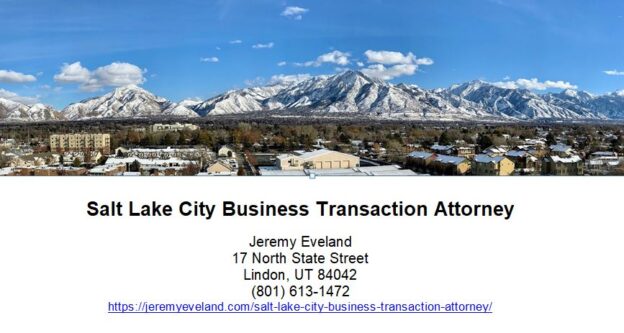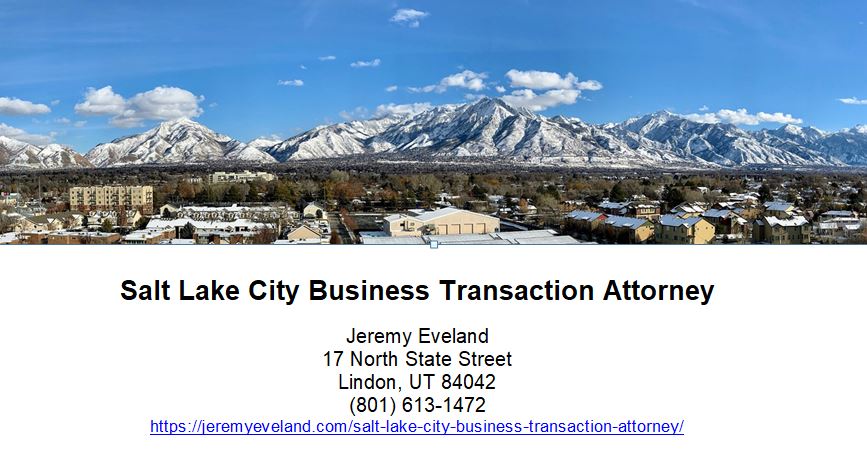Different Trust Types
If you’ve been doing research on the subject of estate planning, you’ve likely run into a lot of different acronyms and trust-types. It can be hard to keep track of them all!
The most common type of trust that most people encounter is the revocable living trust. So first, if you haven’t already, you might want to start by reading some other FAQs:
What is a revocable living trust?
A revocable living trust is a legal arrangement whereby a person (the grantor) transfers ownership of their assets to another person (the trustee) for the purpose of managing those assets for the benefit of the grantor or a third party (the beneficiary). This arrangement is revocable, meaning that the grantor can make changes to the trust or terminate it at any time. Unlike a will, the trust is not subject to probate and the assets pass directly to the beneficiary without the need for court approval.
A revocable living trust can be used in many different ways. For example, it may be used to provide for the care of a minor child or an incapacitated adult, to provide for the management of a disabled person’s assets, or to provide for an orderly distribution of assets upon death. It can also be used to avoid probate, minimize estate taxes, and protect assets from creditors.
The grantor retains control of the trust and can modify or revoke it at any time. The grantor also has the power to appoint a successor trustee in the event of their death or incapacity. The trustee will have the power to manage the trust assets in accordance with the terms of the trust agreement.
The revocable living trust is a powerful estate planning tool that can help individuals manage their assets during their lifetime and provide for their beneficiaries upon death. It can also provide a measure of privacy, since the details of the trust do not become public record upon death. As with any legal arrangement, it is important to consult with a qualified attorney to ensure that the trust meets your individual needs.
What are some of the benefits of a revocable living trust?
What’s the Difference between a Testamentary Trust, a Revocable Living Trust, and an Irrevocable Living Trust?
A testamentary trust is a trust created by a will upon the death of the grantor and funded with the grantor’s assets after death. A revocable living trust is a trust created during the grantor’s lifetime and the grantor retains the right to revoke or modify the trust. An irrevocable living trust is a trust created during the grantor’s lifetime and the grantor cannot revoke or modify the trust.
The main difference between a testamentary trust, a revocable living trust, and an irrevocable living trust is the time of creation and the ability to modify or revoke the terms of the trust. A testamentary trust is created upon the death of the grantor, while a revocable living trust and an irrevocable living trust are created during the grantor’s lifetime. Additionally, the grantor of a revocable living trust can modify and revoke the trust, while the grantor of an irrevocable living trust cannot modify or revoke the trust.
All three types of trusts can be used for a variety of purposes, including estate planning, asset protection, and tax planning. However, testamentary trusts and irrevocable living trusts are often used for estate planning purposes since they allow for the grantor to control how their assets are distributed after death. Revocable living trusts, on the other hand, are often used for asset protection and tax planning purposes since they allow the grantor to protect their assets and minimize their tax liability.
Ultimately, testamentary trusts, revocable living trusts, and irrevocable living trusts each have their own unique advantages and disadvantages, and it is important to consult with an experienced estate planning attorney to determine which type of trust best fits your needs.
Estate planning strategies which work well while interest rates are low include, intra-family loans, grantor retained annuity trusts (GRATs), sales to intentionally defective grantor trusts (IDGTs) and charitable lead annuity trusts (CLATs). When rates are higher, more efficient and commonly deployed strategies include charitable remainder annuity trusts (CRATs) and qualified personal residence trusts (QPRTs). If you are thinking about estate planning, in the midst of such planning, or even if your wealth transfers are complete, prevailing interest rates can have a significant impact on the effectiveness of your planning.
A trust can be created for a variety of reasons including for income or estate tax purposes, veterans benefits planning, Medicaid planning, asset protection planning, charitable planning, or for business succession purposes.
Here’s a guide to help you understand some of the other types of trusts:
Asset Protection Trust
: An asset protection trust is generally a generic name used to refer to a trust that has been set up for asset protection purposes such as to reduce exposure to lawsuits and malpractice claims, bankruptcy, creditors, divorce or remarriage, or nursing home expenses. Asset Protection Trusts come in many different forms depending upon who you are trying to protect (you or other beneficiaries) and what you’re trying to protect from (lawsuits, creditors, divorce, taxes, etc.).
Charitable Lead Trust
: Under a charitable lead trust, a designated charity receives income from the assets held by the trust and the assets then later pass to beneficiaries named by the Trustmaker. Charitable lead trusts may be used for tax planning purposes to take advantage of charitable deductions associated with the gifts being made.
Charitable Remainder Trust
: A charitable remainder trust is essentially the converse of a charitable lead trust. With a charitable remainder trust, the Trustmaker or a beneficiary designated by the Trustmaker receives income from the trust for a specified period of time, such as the Trustmaker’s lifetime or a designated period of years. When the income beneficiary’s interest ends, the trust assets then passed to a designated charity. Again, charitable remainder trusts may be used for tax planning purposes to take advantage of charitable deductions associated with the charitable bequests being made.
Credit Shelter Trust
: In our office, we tend to call these the “Family Trust”. They are also sometimes referred to as a “bypass trust.” Without getting too bogged down in estate tax law, it’s an estate tax planning tool used with a revocable living trust for a married couple to ensure that as a couple, they maximize their estate tax exemption (the amount that you can pass free of estate taxes).
Education Trust
: This is a tool sometimes used by parents or grandparents that want to set aside funds for college expenses while receiving estate tax benefits.
Equestrian Trust (ET)
: An equestrian trust is a form of Pet Trust for horses.
Grantor Retained Annuity Trusts (GRATs), Grantor Retained Unitrusts (GRUTs)
: These are trusts that provide certain tax benefits. Generally, the Trustmaker transfers an asset that is expected to significantly grow in value to the trust for less than its full market value. GRATs and GRUTs may be used to remove the full value of the asset and its future appreciation from the Trustmaker’s taxable estate to reduce future estate taxes upon death.
This is a trust used to set aside a certain amount of funds to provide for the continued care of one’s pets such as horses, dogs, cats, tropical birds, or other pets. A pet trust allows you to leave detailed instructions about how you want the pet provided for, who will provide care and ensure there are sufficient financial resources to provide such care without burdening your loved ones with such responsibility or financial burden. A Pet Trust is strongly recommended when you have pets with a longer lifespan (e.g., horses, tropical birds, etc.) and/or pets that are costly to maintain (e.g., horses, show dogs, etc.).
Grantor Trust
The term “Grantor Trust” is used to refer to a trust that is taxed to the Grantor (the person that created the trust) for either income tax purposes, estate tax purposes, or both.
Heir Safeguard Trust
: An Heir Safeguard Trust is a term used in Family Estate Planning to refer to a trust that has been designed to protect the inheritance from the beneficiary’s future potential lawsuits, creditors, or divorce.
Intentionally Defective Grantor Trust (IDGT)
: Intentional or not, who wants to be told they have a defective trust, right? The name of these trusts refers to the somewhat contradictory tax treatment that they receive. The trust terms are drafted such that the assets held by the trust will not be counted as part of your taxable estate for estate tax purposes. But at the same time, the trust agreement includes an intentional ‘flaw’ that allows you to continue paying the income taxes on the assets (and by making such payments yourself instead of by your children, this continues to further reduce your taxable estate). This can be a particularly appealing tax planning option if interest rates are low and/or values of the assets have depreciated such as during a real estate or stock market downturn.
Inter Vivos Trust
: Inter Vivos Trust is Latin for a Living Trust. The term “Living Trust” simply refers to a trust that comes into being during the Trustmaker’s lifetime rather than a Testamentary Trust which does not come into creation until after the Trustmaker’s death.
IRA Trust
: An IRA Trust refers to a trust that is specially designed for retirement plans such as individual retirement accounts (IRAs), 401(k)s, 403(b)s, and similar. Generally, the purpose of the Stretchout Protection Trust is to protect the income-tax benefits of the retirement plan while also protecting the retirement plan from future lawsuits, creditors, or divorce.
Irrevocable Trust
: Irrevocable trusts are used for many different reasons. With a Revocable Living Trust, you have the right to amend any or all of the terms or revoke it entirely. At its most basic level, an irrevocable trust means that somewhere in the trust document there is a power that you gave up permanently and cannot change without either court approval or the approval of all of the trust beneficiaries. For example, you may have given up the right to withdraw principal or change the beneficiaries. Thus, these trusts tend to be a bit more “set in stone,” but the degree to which they are set in stone depends on their purposes. For example, some of the irrevocable trusts that we use for Medicaid planning and veterans benefits planning still have some flexibility. Other irrevocable trusts are used for tax planning purposes and are much more rigid because the IRS rules require them to be.
Irrevocable Income-Only Trust
: This is a type of living trust frequently used for asset protection during retirement and planning for potential eligibility for Medicaid benefits for nursing home care. With an Irrevocable Income-Only Trust, a person transfers assets to an Irrevocable Trust for the benefit of other beneficiaries (such as children or grandchildren), but retains the right to continue receiving any income generated by the trust assets (such as interest and dividends). The Trustmaker also typically retains the right to continue using and living in any real estate held by the trust and can change the beneficiaries of the trust. The Trustmaker may be able to access the trust funds indirectly through the children or grandchildren.
Irrevocable Life Insurance Trust (ILIT)
: This is a common form of irrevocable trust used for estate tax planning purposes and to keep the proceeds of life insurance protected from future lawsuits or creditors. An Irrevocable Life Insurance Trust holds one or more life insurance policies (and it can also hold other assets). Under the federal estate tax rules, the death benefits of any life insurance policies that you own will be counted as part of your gross taxable estate and may be subject to estate taxes. If the life insurance policies are instead owned by a properly created Irrevocable Life Insurance Trust, then upon your death the life insurance proceeds will not be included as part of your taxable estate. The tax rules for proper setup and maintenance of an Irrevocable Life Insurance Trust are extremely strict.
Lifetime QTIP Trust (or Inter Vivos QTIP Trust)
A Lifetime Qualified Terminable Interest Property Trust, often referred to as a Lifetime QTIP Trust or Inter Vivos Trust, refers to a QTIP Trust established during the Trustmaker’s lifetime. See below for a definition of a QTIP Trust. A Lifetime QTIP Trust may be used for lifetime asset protection and tax planning purposes.
Different Trust Types Consultation
When you need help with Different Trust Types call Jeremy D. Eveland, MBA, JD (801) 613-1472 for a consultation.
Jeremy Eveland
17 North State Street
Lindon UT 84042
(801) 613-1472
Related Posts
Estate Planning Lawyer West Valley City Utah
Business Contract Lawyer Spanish Fork
Corporate Attorney Riverton Utah
Advantages of Hiring a Utah Personal Injury Lawyer
Estate Planning Lawyer Provo Utah
Business Lawyer West Valley City Utah


























